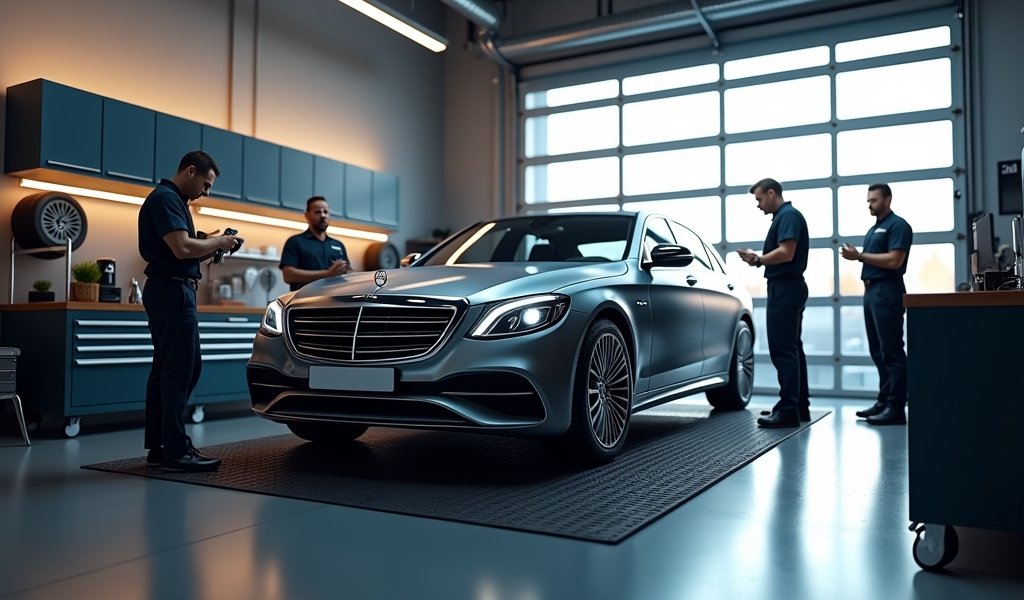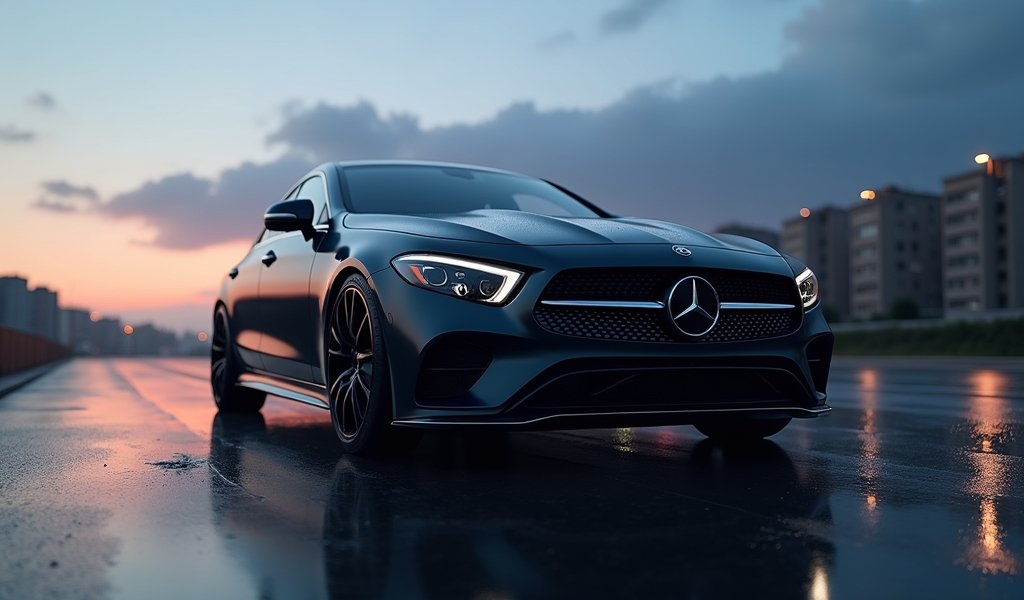Overview
This article examines seven top tire brands (Michelin, Continental, Bridgestone, Pirelli, Goodyear, Yokohama, and Cooper), highlighting each brand’s unique strengths, technological innovations, and ideal use cases. The guide emphasizes that selecting the right tires depends on your specific driving conditions, budget considerations, and vehicle requirements, while noting that even premium-priced tires often deliver better long-term value through superior performance and longevity.
Table of Contents
- Introduction
- Why Tire Brands Matter
- Michelin: Premium Performance and Longevity
- Continental: German Engineering Excellence
- Bridgestone: Innovation and All-Weather Reliability
- Pirelli: Performance and Precision
- Goodyear: American Heritage and Innovation
- Yokohama: Japanese Quality and Value
- Cooper: American-Made Dependability
- How to Choose the Right Tire Brand for Your Vehicle
- Conclusion
- Frequently Asked Questions
Introduction
When it comes to vehicle safety, few components are as critical as your tires. They’re the only parts of your car that actually touch the road, creating that essential connection between your two-ton vehicle and the asphalt below. Finding the best tire brands for cars isn’t just about getting a good deal—it’s about investing in your safety, comfort, and vehicle performance.
After 20 years as an ASE-certified mechanic, I’ve seen firsthand how quality tires can transform a vehicle’s handling, braking distance, and overall driving experience. The right set can mean the difference between stopping safely in an emergency or sliding into trouble.
In this comprehensive guide, we’ll walk through seven proven tire brands that consistently deliver exceptional performance, longevity, and value. Whether you’re navigating rainy highways, snowy mountain passes, or just the daily commute, choosing the right tires for your vehicle starts with understanding which manufacturers you can trust.
Why Tire Brands Matter
You might wonder why you should care about tire brands at all. After all, aren’t they just rubber donuts? That couldn’t be further from the truth. Top tire manufacturers invest millions in research and development, creating proprietary rubber compounds, tread designs, and internal structures that deliver measurable advantages.
Premium tire brands typically offer better:
- Stopping distances, especially in wet conditions
- Fuel efficiency through reduced rolling resistance
- Tread life and wear patterns
- Noise reduction technologies
- Road hazard warranties and satisfaction guarantees
According to NHTSA research, proper tire maintenance and quality are crucial for preventing accidents. Their data shows that vehicles with well-maintained, quality tires are significantly less likely to be involved in crashes related to tire failures.
While budget brands might save you money upfront, they often cost more in the long run through faster wear, poorer fuel economy, and reduced performance when you need it most. With that in mind, let’s examine seven tire manufacturers with proven track records for excellence.

Michelin: Premium Performance and Longevity
When mechanics talk about the gold standard in tires, Michelin invariably enters the conversation. This French manufacturer has built its reputation on exceptional engineering, innovative technologies, and tires that consistently outperform competitors in longevity tests.
Michelin’s strength lies in their ability to balance seemingly contradictory tire characteristics. Most manufacturers must compromise—softer rubber compounds provide better grip but wear faster, while harder compounds last longer but offer less traction. Michelin has largely solved this puzzle through advanced materials science.
Their flagship models like the Defender T+H for everyday driving and the Pilot Sport series for performance applications demonstrate this balance beautifully. In independent testing, Michelin tires typically excel in:
- Wet and dry braking distances
- Treadwear ratings (often lasting 70,000+ miles in touring models)
- Low rolling resistance for better fuel economy
- Reduced road noise compared to competitors
The downside? Michelin commands premium prices, often 15-30% higher than mid-range competitors. However, when you calculate the cost-per-mile and factor in their exceptional warranty coverage, they frequently represent better long-term value despite the higher initial investment.
Best for: Drivers who prioritize safety, longevity, and are willing to invest more upfront for better performance and longer-lasting tires.
Continental: German Engineering Excellence
Continental tires exemplify German engineering principles: precision, innovation, and relentless attention to detail. Founded in 1871, Continental has leveraged its extensive automotive technology experience to create tires that particularly excel in wet conditions and braking performance.
What sets Continental apart is their focus on safety technologies. Their ContiSeal technology, for instance, can automatically seal punctures up to 5mm in diameter, potentially preventing dangerous blowouts. Meanwhile, their ExtremeContact series consistently ranks among the top performers in wet braking tests.
Continental’s TrueContact and PureContact lines strike an impressive balance for daily drivers, offering:
- Class-leading wet traction and hydroplaning resistance
- Excellent feedback and steering response
- Comfortable, quiet ride characteristics
- Strong treadwear warranties (typically 60,000-80,000 miles)
Continental prices tend to fall between premium brands like Michelin and more value-oriented options, making them an excellent “sweet spot” choice for many drivers seeking quality without the absolute top-tier price tag.
Best for: Safety-conscious drivers who value exceptional wet-weather performance and sophisticated engineering without paying the highest premium prices.
Bridgestone: Innovation and All-Weather Reliability
As the world’s largest tire manufacturer, Bridgestone brings immense resources to their tire development process. This Japanese company has built its reputation on technological innovation and consistent performance across diverse driving conditions.
Bridgestone particularly shines with their all-season and winter tire options. Their Blizzak winter tire line has become nearly synonymous with snow performance, while their Turanza and Ecopia families deliver exceptional all-season versatility for everyday drivers.
What impresses me most about Bridgestone is their commitment to sustainability without sacrificing performance. Their Ecopia line, for instance, reduces rolling resistance for better fuel economy while maintaining excellent wet traction—a difficult balance to achieve.
Key strengths of Bridgestone tires include:
- Exceptional winter performance (especially in dedicated winter models)
- Strong resistance to irregular wear patterns
- Advanced noise-reduction technologies
- Excellent high-speed stability and handling
Bridgestone typically prices their tires at the premium end of the market, though not quite as high as Michelin. Their comprehensive warranty coverage and wide availability make them a convenient choice for many drivers.
Best for: Drivers in variable climate regions who need reliable performance year-round, especially those who experience occasional snow but don’t want dedicated winter tires.

Pirelli: Performance and Precision
Pirelli has firmly established itself as the performance enthusiast’s tire of choice. This Italian manufacturer leverages its Formula 1 racing experience to develop consumer tires with exceptional handling characteristics and precise steering response.
While Pirelli makes excellent all-season options like the P4 Four Seasons, they truly distinguish themselves with performance-oriented models like the P Zero and Scorpion families. These tires deliver exceptional lateral grip, steering precision, and high-speed stability that performance-oriented drivers crave.
One often overlooked strength of Pirelli is their specialized sizing. If you drive a European luxury vehicle or sports car with non-standard tire dimensions, Pirelli often offers fitments where other manufacturers don’t. This specialization extends to their homologated tires—specifically designed for particular vehicle models in partnership with manufacturers like Porsche, BMW, and Ferrari.
Pirelli’s distinguishing characteristics include:
- Exceptional steering response and feedback
- Superior dry traction and cornering stability
- Specialized fitments for luxury and performance vehicles
- Distinctive aesthetic design with sidewall styling options
The tradeoff for this performance focus is typically reduced treadwear compared to touring-oriented competitors. Pirelli tires also command premium prices, though they frequently run promotions through tire retailers.
Best for: Performance enthusiasts, luxury vehicle owners, and drivers who prioritize handling precision and driving engagement over maximum tread life.
Goodyear: American Heritage and Innovation
With over 120 years of tire manufacturing experience, Goodyear represents American engineering excellence and practical innovation. Their comprehensive lineup covers everything from budget-friendly all-season tires to specialized performance and off-road models.
Goodyear has mastered the art of creating tires that perform exceptionally well in the conditions most drivers actually face. Their Assurance WeatherReady, for instance, carries the Severe Snow Service rating while functioning as an all-season tire—eliminating the need for seasonal tire changes for many drivers in moderate winter climates.
What I particularly appreciate about Goodyear is their focus on practical innovations rather than marketing gimmicks. Their SoundComfort technology genuinely reduces interior noise, while their specialized rubber compounds demonstrate measurable improvements in wet traction and winter performance.
Goodyear strengths include:
- Excellent all-weather versatility
- Strong warranties and customer satisfaction guarantees
- Wide availability through their own store network
- Innovative tread designs that effectively evacuate water
- Made-in-USA options for those preferring American manufacturing
Goodyear positions itself in the upper-mid price range, making their tires more affordable than Michelin while still offering premium performance characteristics. Their frequent promotions and rebate programs can further reduce the effective cost.
Best for: Practical drivers seeking reliable performance across diverse conditions with the convenience of wide availability and strong warranty support.
Yokohama: Japanese Quality and Value
Yokohama represents the perfect balance of Japanese engineering precision and value-conscious pricing. While not as widely recognized as some competitors, this brand has steadily built a reputation for delivering excellent performance at more accessible price points.
What makes Yokohama stand out is their specialized technology focus. Their orange oil technology, for instance, replaces petroleum oils in their rubber compounds with sustainable citrus oil, improving grip while reducing environmental impact. Meanwhile, their adaptive tread patterns show remarkable versatility across changing road conditions.
The AVID Ascend GT exemplifies Yokohama’s approach—delivering near-premium performance characteristics with treadwear warranties up to 65,000 miles at a price point significantly below the top-tier brands. Their specialized Geolandar line also offers exceptional value for SUV and light truck owners.
Yokohama’s key attributes include:
- Excellent dry traction and cornering stability
- Strong performance-to-price ratio
- Innovative eco-friendly technologies
- Lower rolling resistance for improved fuel economy
The primary limitation of Yokohama is their somewhat smaller dealer network compared to the largest brands, though online retailers have largely eliminated this concern. Some models also prioritize performance over ride comfort, which may not suit all drivers.
Best for: Value-conscious drivers who want performance characteristics approaching premium brands without the premium price tag.
Cooper: American-Made Dependability
Cooper Tires represents American manufacturing tradition combined with practical innovation. Before being acquired by Goodyear in 2021, Cooper spent over a century as America’s fourth-largest tire manufacturer, building a reputation for dependable products at fair prices.
What Cooper does exceptionally well is create tires that deliver consistent, predictable performance without unnecessary frills. Their CS5 Grand Touring and Ultra Touring models, for instance, provide excellent all-season traction, respectable treadwear, and comfortable ride quality without the premium price tag of the market leaders.
Cooper has particularly excelled at developing specialized tires for specific applications. Their Discoverer AT3 family offers three distinct variants for different off-road needs, while their performance-oriented RS3-G1 delivers impressive grip at a competitive price point.
Cooper’s strengths include:
- Excellent value-to-performance ratio
- Strong treadwear warranties (typically 60,000-70,000 miles)
- Made-in-USA manufacturing
- Specialized options for light trucks and SUVs
- Competitive pricing significantly below premium brands
While Cooper tires may not offer the absolute cutting-edge technology of the premium brands, their focus on delivering 90% of the performance at 75% of the price makes them an excellent choice for practical drivers.
Best for: Budget-conscious consumers who prioritize value and dependability over prestige or specialized performance characteristics.
How to Choose the Right Tire Brand for Your Vehicle
With seven excellent tire manufacturers to choose from, how do you determine which is right for your specific needs? The decision comes down to understanding your personal priorities, driving conditions, and vehicle requirements.
Consider these factors when making your decision:
Your Typical Driving Conditions
Be honest about the conditions you actually drive in, not the ones you imagine. If you live in Phoenix, premium winter performance is irrelevant, while if you’re in Michigan, it might be your top priority. Similarly, if your commute involves mountain roads, handling performance matters more than for highway cruising.
Different brands excel in different conditions:
- Wet climate regions: Continental and Bridgestone
- Snow-heavy regions: Bridgestone (Blizzak) and Michelin (X-Ice)
- Hot climate regions: Michelin and Goodyear
- Performance driving: Pirelli and Michelin
Your Budget Reality
Tire prices vary significantly between brands and models. Choosing the right tires for your car means balancing what you can afford now with long-term value. Consider the total cost of ownership by dividing the price by the expected mileage from the treadwear warranty.
For example, a $200 tire with a 60,000-mile warranty costs about $0.0033 per mile, while a $160 tire with a 40,000-mile warranty costs $0.004 per mile—making the more expensive tire a better long-term value.
Your Vehicle’s Requirements
Some vehicles have specific needs that certain brands address better than others:
- Luxury vehicles often benefit from Michelin or Continental’s focus on quiet comfort
- Performance cars typically perform best with Pirelli or Michelin’s handling-focused designs
- Electric vehicles need low rolling resistance tires like those from Bridgestone’s Ecopia line
- SUVs and crossovers often need specialized tires from Goodyear or Cooper’s truck-focused lines
According to Consumer Reports’ testing, matching tire characteristics to your specific vehicle type can significantly impact handling, comfort, and safety.
Warranty and Support Considerations
Don’t overlook the value of strong warranty coverage and customer support. Brands like Michelin, Goodyear, and Continental typically offer more comprehensive warranty protection, including road hazard coverage, satisfaction guarantees, and sometimes even roadside assistance.
These protections can prove invaluable if you encounter manufacturing defects or premature wear issues, potentially saving hundreds of dollars in unexpected replacement costs.
Conclusion
The best tire brands for cars offer more than just rubber meeting the road—they provide the confidence that comes from knowing your vehicle can stop, corner, and handle safely in diverse conditions. While Michelin, Continental, Bridgestone, Pirelli, Goodyear, Yokohama, and Cooper each bring distinct strengths to the table, all seven have earned their reputations through consistent quality and innovation.
Remember that the “best” tire brand ultimately depends on your specific needs, driving conditions, and budget constraints. A Michelin might be perfect for one driver while a Cooper represents the ideal balance for another. The key is making an informed decision based on your actual driving requirements rather than marketing claims or the lowest price tag.
Whatever brand you choose, don’t compromise on regular maintenance. Even the finest tires perform poorly when underinflated, misaligned, or worn beyond their useful life. Proper inflation, rotation, and alignment will maximize the performance and lifespan of any tire you select.
Your tires represent one of the most significant safety investments you can make in your vehicle. Choose wisely, maintain properly, and enjoy the confidence that comes from knowing you’ve put quality rubber between you and the road ahead.
Frequently Asked Questions
Which tire brand lasts the longest?
Michelin consistently tops longevity tests, with many touring models exceeding 70,000 miles. Their advanced rubber compounds and tread designs resist irregular wear patterns that prematurely end tire life.
Are expensive tire brands worth the money?
Premium brands often provide better value per mile despite higher upfront costs. When you factor in improved safety, fuel economy, and longer tread life, brands like Michelin and Continental typically justify their higher prices.
What’s the best all-season tire brand?
Bridgestone and Goodyear excel in creating versatile all-season options. Their tires demonstrate exceptional performance across varying temperatures and conditions, with models like the Bridgestone Turanza and Goodyear Assurance leading the category.
How often should I replace my tires regardless of brand?
Replace tires when tread depth reaches 2/32″ (the legal minimum) or after 6 years regardless of tread depth. Rubber compounds degrade with age, reducing performance and safety even if tread appears adequate.
Can I mix different tire brands on my car?
While technically possible, mixing brands isn’t recommended as it can create handling imbalances. Different brands use distinct rubber compounds and tread designs that may respond differently during braking and cornering.

